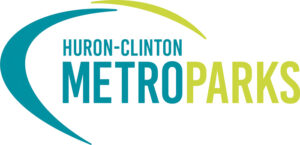 DETROIT, Mich.: The Metroparks have partnered with Detroit Public Schools Community District (DPSCD) to offer interactive recreational and environmental learning programs to underserved students in Detroit to help address educational equity in southeast Michigan.
DETROIT, Mich.: The Metroparks have partnered with Detroit Public Schools Community District (DPSCD) to offer interactive recreational and environmental learning programs to underserved students in Detroit to help address educational equity in southeast Michigan.
Last spring, the Metroparks and DPSCD hosted nearly 1,000 middle school and high school students from 21 Detroit public schools for a combined physical and educational experience.
Through the partnership, there were a total of 32 field trips to Oakwoods, Willow, Lake Erie, Stony Creek and Lake St. Clair Metroparks, where students participated in activities like biking, foot golf, pickleball, shuffleboard and volleyball. Students also hiked with a Metroparks interpreter who provided environmental education along the way.
“I can’t wait to tell my mom I biked six miles around this lake! I need to bring her here,” shared one student, who didn’t want to leave the park without a map to bring home and show off what she accomplished.
“It’s essential for our students to get outside and spend time with Michigan’s beautiful natural resources,” said Metroparks Director Amy McMillan. “We have 25,000 acres of nature’s classroom at our fingertips here in the Metroparks that serve as great learning tools for students, and our goal is to make sure every student in southeast Michigan has equitable access to that space to help them learn and love the outdoors.”
The DPSCD physical education partnership will continue annually with seasonal recreational field trips, including snowshoeing and cross-country skiing as weather allows, to offer diverse experiences for students to enjoy.
Metroparks and DPSCD have also joined forces to provide supplemental science lessons to over 400 4th, 5th and 8th grade public school students in Detroit this October. The program is being launched this fall as a creative solution to supplement what passionate teachers are already doing and addressing education gaps for underserved communities.
“What makes these programs so impactful is that students are given the opportunity to lead through their own investigative interests,” said Jennifer Jaworski, Metroparks Chief of Interpretive Services. “And it’s this type of first-hand learning that helps students retain information and be more intentional when engaging with our natural environment.”
Students participate in interactive educational activities outdoors where they observe wildlife and learn about native trees, plants and vegetation around their own school yard. Science lessons are being offered twice a week the entire school year to all 4th, 5th and 8th grade students at John R King Academic and Performing Arts Academy in Detroit.
Additionally, Metroparks staff will be working with 2nd and 3rd grade teachers at the academy to inspire lesson plans that include engaging outdoor learning, and to schedule interactive outdoor fieldtrips at the Metroparks later in the school year. In total, this will supplement and expand student learning across five grade levels at John R King Academic and Performing Arts Academy. All Metroparks educational programs are designed to align with the National Guidelines for Science Standards and Michigan Science Standards, and the goal is to deepen students’ understanding of science and the world around them.
The Metroparks also supports students through the following organized programs:
Free field trips
- Free experiential field trips to public schools in select townships of Clair County, Lapeer County, Macomb County and Oakland County funded through a grant from the Four County Community Foundation (4CCF). https://www.4ccf.org/
- Trips include free transportation to Stony Creek or Wolcott Mill Metroparks for hands-on activities related to agriculture, history, nature and science.
- The program will run through the 2022-2023 school year.
Get Out and Learn
- Scholarship program funded by the Metroparks that offers free field trips or inschool programs for underserved schools in Southeast Michigan schools to any of the Metropark Interpretive Centers, including transportation and programming fees.
- To qualify, schools must have at least 50% of students eligible for the federal free and reduced lunch program.
Teachers can learn more or apply by visiting https://www.metroparks.com/education/#EDUCATIONALGRANTS.

